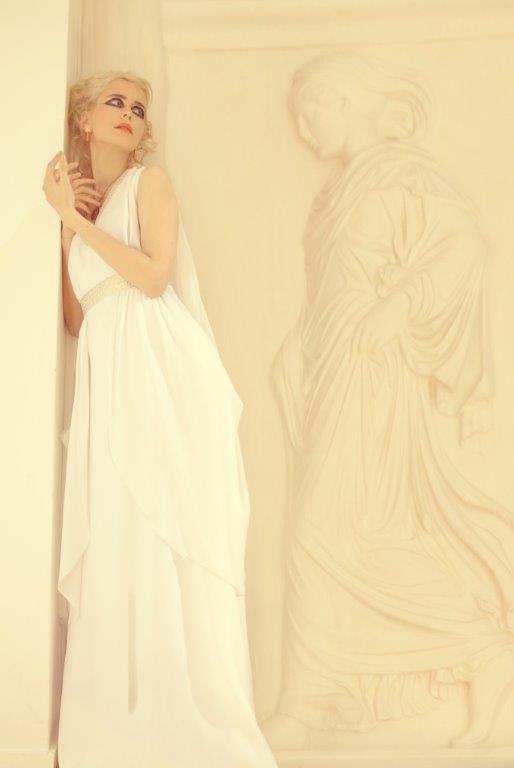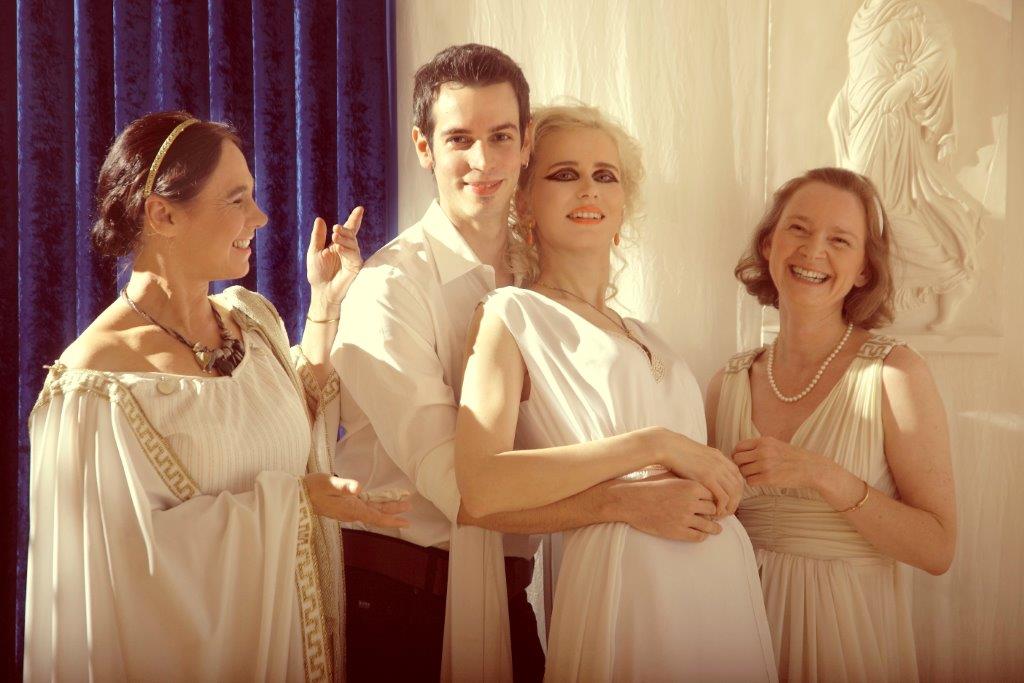Sappho
In Anna Sutyagina’s Musical Salon this time everything revolves around a Greek author who advanced her time: the ancient poet and philosopher Sappho is considered the most important poet of classical antiquity. She lived in Mytilene on the island of Lesbos, a cultural center of the 7th century BC and came from an old noble family. Her open-minded father allowed her to learn with her brothers, which girls in archaic Greece were usually not allowed to do. From 560 B.C. In BC Sappho gathered a group of schoolgirls on Lesbos. She taught the young women musical skills such as poetry, music, song and dance and performed with them at festivals in honor of the gods. But her unconventional teaching methods also aroused offense, as she also initiated the young women into the secrets of love. There are suspicions that she was married to a wealthy merchant and had a daughter. According to a later legend, she is said to have thrown herself from the Leukadian Rock out of desperation that the beautiful ferryman Phaon left her love unrequited.
In later Greek history, the poems Sapphos were criticized and partly ostracized by calling Sappho a hetaera – in ancient times the term for a female prostitute. The reason for this was probably her passionate and devoted poetry, in which she praised love and expressed her feelings. In later times this was no longer considered modest enough. In addition, the women and girls on Lesbos led an independent, sociable and free life. Sappho’s students were able to develop their talents in poetry and in philosophical perspectives. All of this was no longer granted to women in the following times, e.g. in Athens.
The musical framework is provided by compositions by Debussy, Mouquet and Faure – all with interpretations of ancient motifs – as well as Greek folk songs and bouzouki folklore.
[bscolumns class=”one_half”]Video

[/bscolumns]
[bscolumns class=”one_half_last”]Sappho
The ancient art of love
[/bscolumns]
[bscolumns class=”one_half”]Images


[/bscolumns]
[bscolumns class=”one_half_last”]


[/bscolumns]